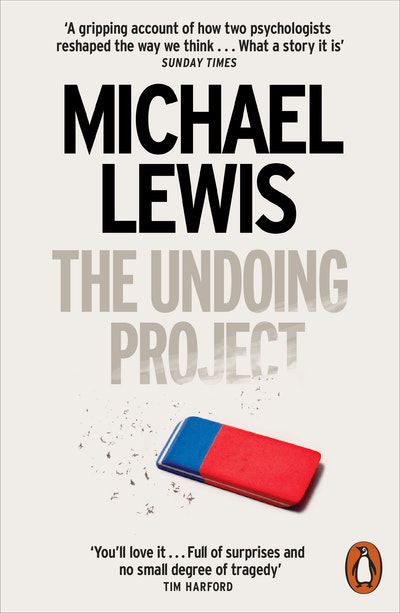

While describing the history of Kahneman and Tversky’s collaboration, Lewis shows that between 19 they overturned our understanding of how we make decisions not once, but three times. During its final pages, I was blinking back tears, hardly your typical reaction to a book about a pair of academic psychologists. The Undoing Project Summary Three Major Breakthroughs. Altschuler arguing in the Pittsburgh Post-Gazette that it "may well be his best book." Writing in The New Yorker, law professor Cass Sunstein and economist Richard Thaler praised the book's ability to explain complex concepts to lay readers as well as turn the biographies of Tversky and Kahneman into a page-turner: "He provides a basic primer on the research of Kahneman and Tversky, but almost in passing what is of interest here is the collaboration between two scientists." Jennifer Senior of The New York Times wrote that "At its peak, the book combines intellectual rigor with complex portraiture. It was acclaimed by book critics.Īccording to the review aggregator Bookmarks, The Undoing Project was met largely by rave reviews, with Glenn C. As Lewis writes, the enthusiasm for replacing old-school expertise with new-school data analysis was often shallow (16).

The book revisits Lewis' interest in market inefficiencies, previously explored in his books Moneyball (2003), The Big Short (2010), and Flash Boys (2014). The Undoing Project explores the close partnership of Israeli psychologists Daniel Kahneman and Amos Tversky, whose work on heuristics in judgment and decision-making demonstrated common errors of the human psyche, and how that partnership eventually broke apart. The Undoing Project: A Friendship That Changed Our Minds is a 2016 nonfiction book by American author Michael Lewis, published by W.W. In his new book, The Undoing Project, Lewis tells the story of Daniel Kahneman and Amos Tversky, two Israeli psychologists who made some surprising discoveries about the way people make.


 0 kommentar(er)
0 kommentar(er)
